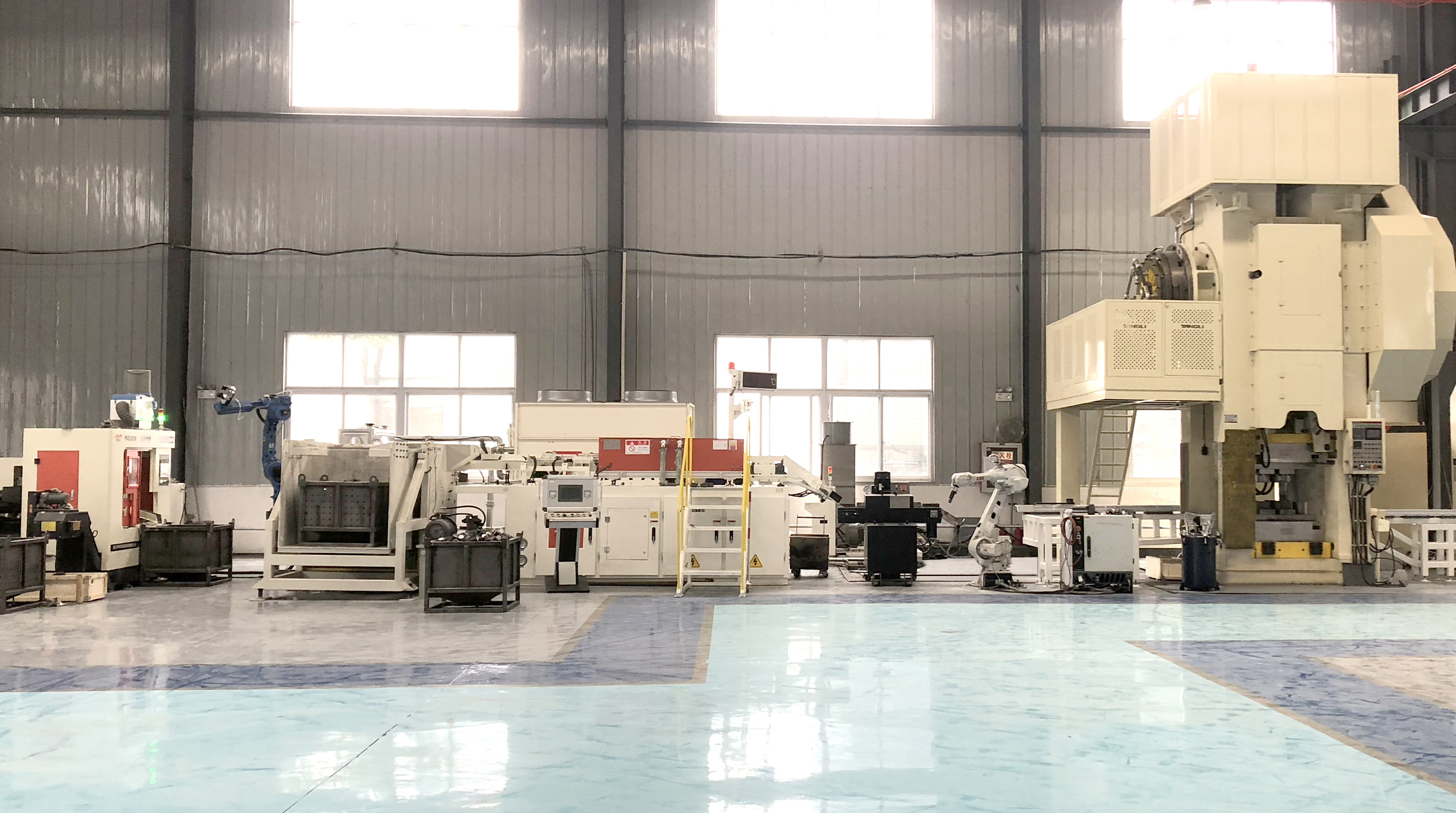
Solution for forging at high temperatures in the workshop
发布时间:
2025-07-31
In July Nanjing, the heat was like a tightly woven net, enveloping the entire city in a steaming oven. But in the forging workshop of Nanjing Litai Technology, the scorching heat was even more intense than the temperature outside - the swirling molten steel in the furnace was an orange-red torrent of metal, carrying 1200℃ of heat waves, surging forward on the automated tracks.

Ten years ago, such high temperatures were a persistent nightmare in the workshop. The veteran workers wore three layers of heat insulation suits, and the sweat on their foreheads would turn into white fog as soon as it emerged. They had to drink five kilograms of salt water per hour to withstand dehydration. At that time, a single bolt production line required eight workers to take turns on duty. During hot weather, heatstroke was a common occurrence, and production efficiency was also affected accordingly.
Now, when entering the workshop, the scene is completely different. Six robotic arms are moving freely in the high-temperature area, precisely clamping the red-hot steel billets. In an instant, the entire process of forging, shaping and cooling is completed. On the monitoring screen, real-time data are flashing: hourly output volume, pass rate, etc. These figures could only be achieved with three times the manpower ten years ago.
"Now the workers are all sitting in air-conditioned rooms, staring at the screens." The workshop director pointed to the control room and said. Three technicians are monitoring the entire production process through the digital twin system. By simply touching the screen with their fingers, they can adjust the forging parameters. When the system detects an abnormal temperature for a certain piece of equipment, it will automatically trigger the cooling program and at the same time display an alert message on the operation interface. The entire process does not require any personnel to be close to the high-temperature area.

The automation transformation has not only brought about an improvement in comfort. In the past, when manual forging was carried out, the size error of the bolts often exceeded 0.3 millimeters. But now, with the cooperation of precision press machines and laser measuring instruments, the error can be controlled within 0.05 millimeters. More importantly, the continuous production capacity has been extended from 16 hours per day to 24 hours. At the same time, the daily production capacity has increased by 52%, while energy consumption has decreased by 18%.
At noon, the thermometer beside the furnace indicated 58℃, but this no longer had any impact on the production schedule. The robotic arms were still working tirelessly, and the red bolts and nuts, after being sprayed with cold water, took on a bluish-gray sheen as they flowed along the conveyor belt towards the quality inspection area. In the workshop of Nanjing Litai Technology, high temperatures remain a testament to the summer season, but they are no longer the bottleneck that restricts production - intelligent equipment is using its steel will to contend with the natural temperature limit.
Related News







